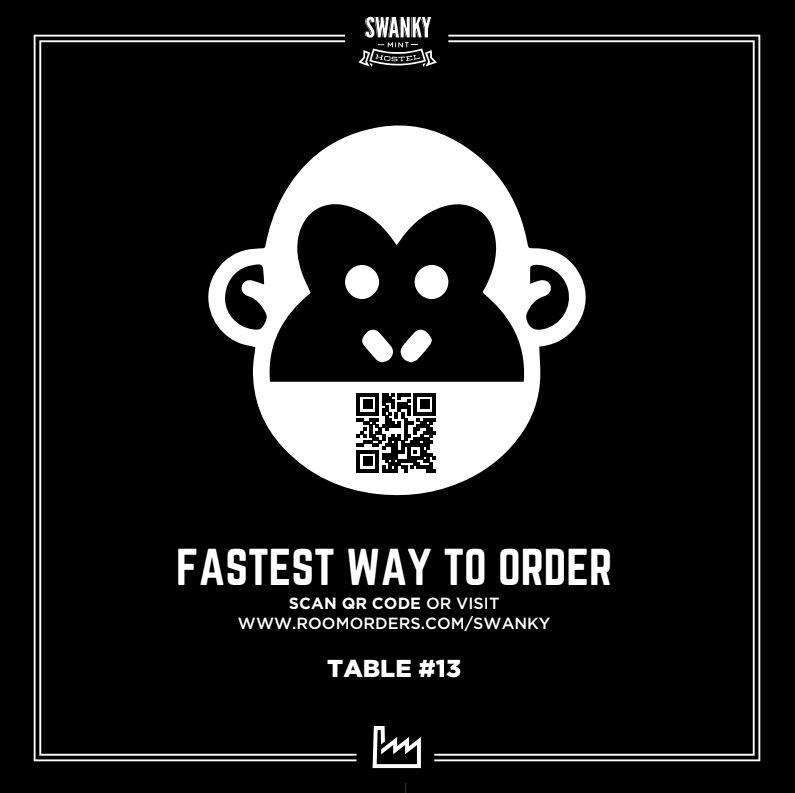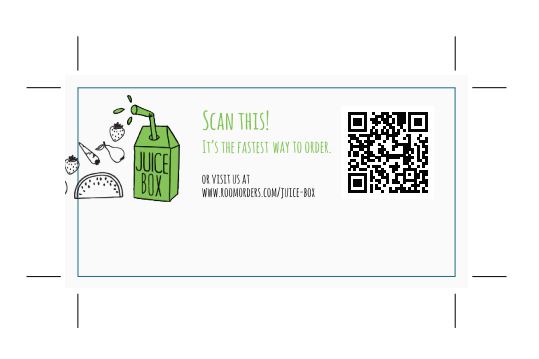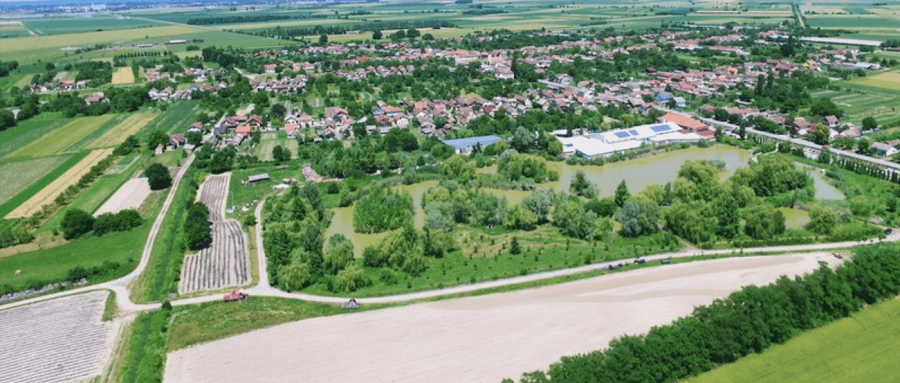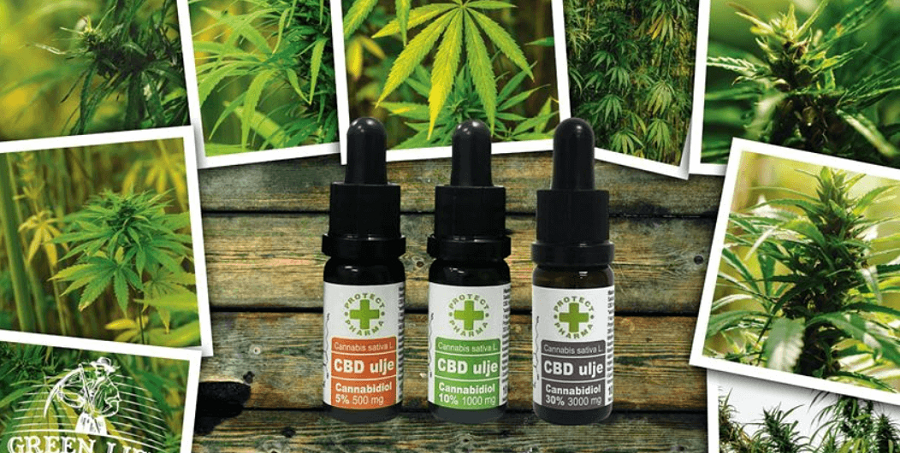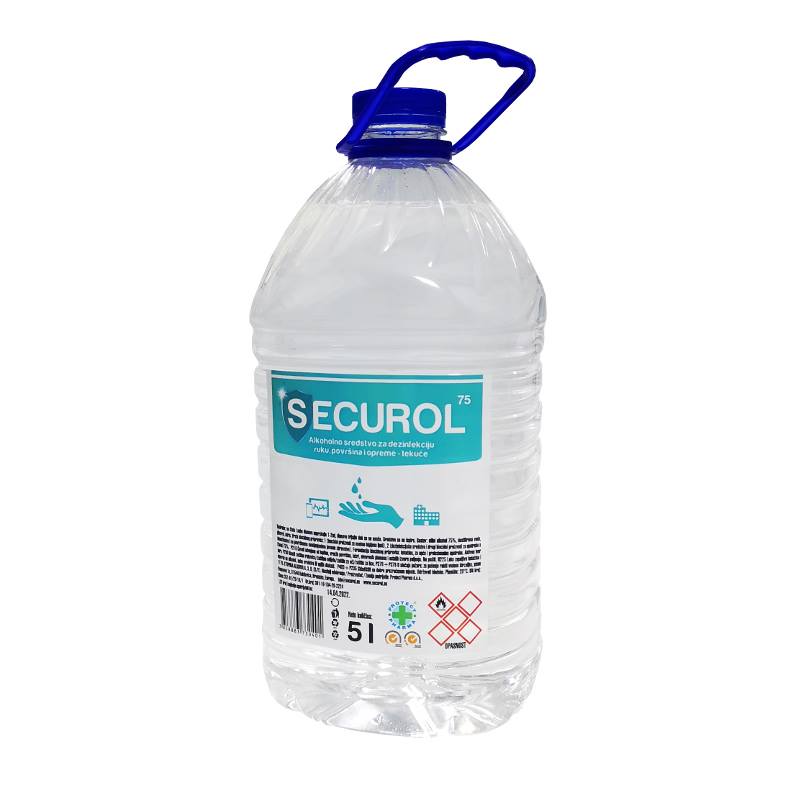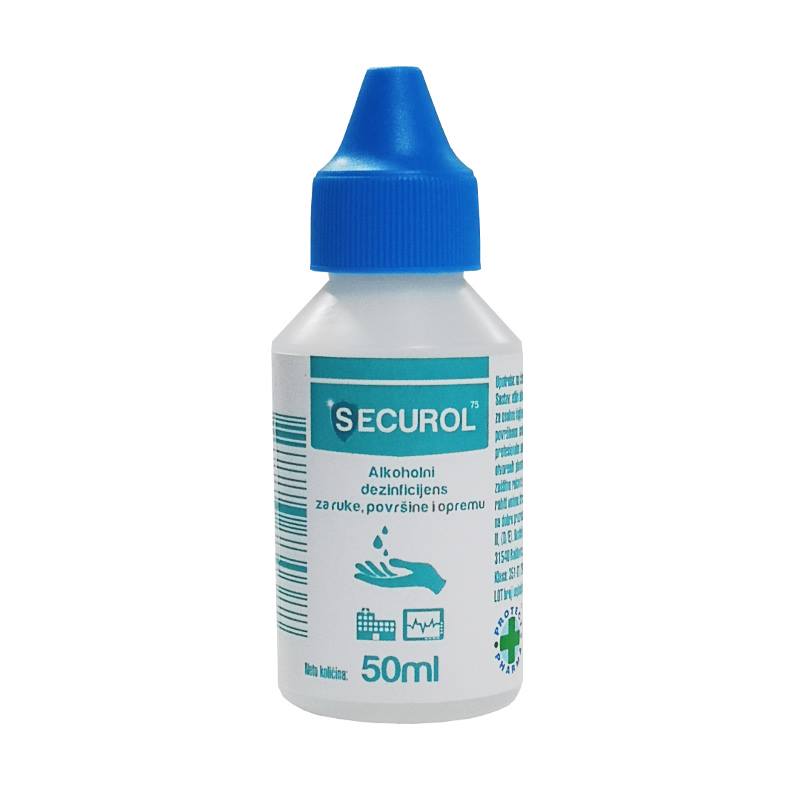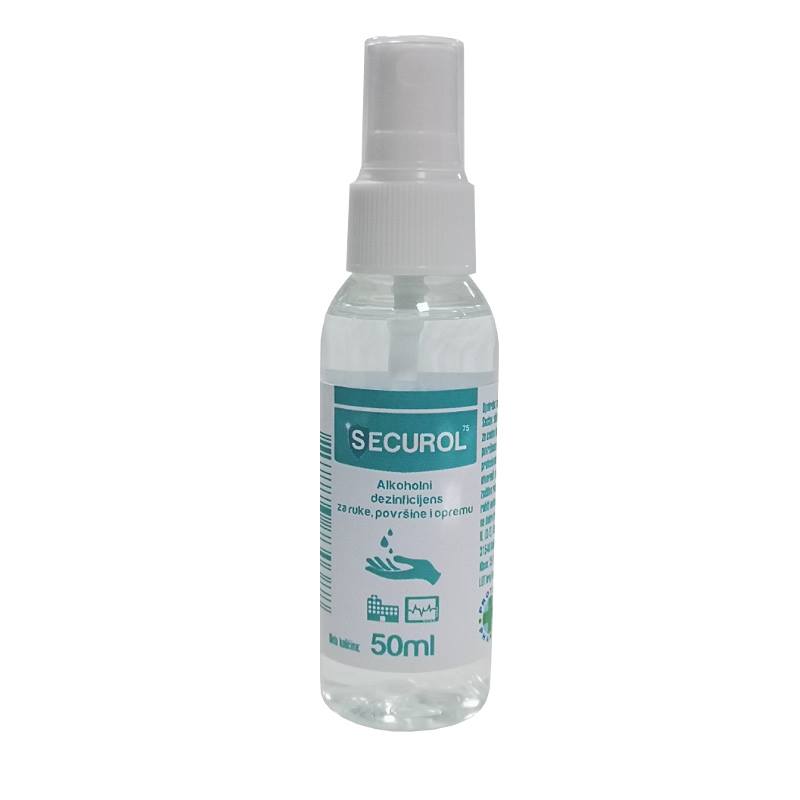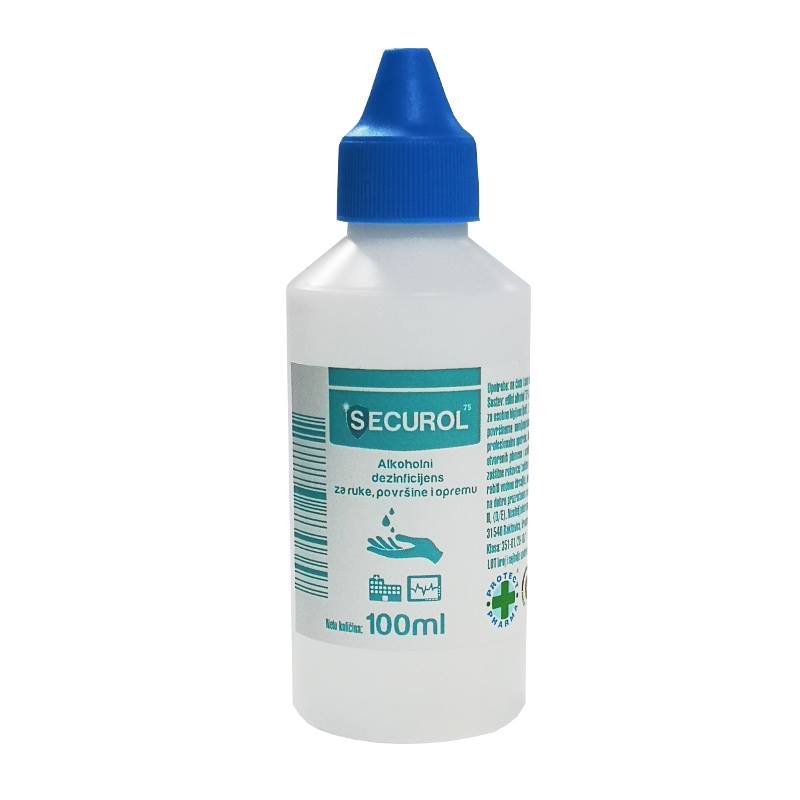Record Consumption Drop in April, Sharp Decline for Croatian Economy
As Poslovni Dnevnik writes on the 29th of May, 2020, in April this year, retail consumption in Croatia sank by a record 25.5 percent when compared to the same month last year, and industrial production also recorded a large decline, which heralds a sharp decline for the Croatian economy in the second quarter.
The Central Bureau of Statistics (CBS) released a report on retail trade turnover on Friday, and according to calendar-adjusted data, consumption fell 19.8 percent in April compared to the previous month, while, as stated, it sank 25.5 percent compared to April last year.
This is the second month in a row in which consumption has fallen under the influence of the ongoing coronavirus crisis, as it was 7 percent lower in March than in the same month last year. The CBS also announced on Friday that industrial production fell by 11 percent in April compared to the same month last year, its biggest drop since June 2009, when it sank 13.3 percent.
This is the sixth month in a row that production has been falling, and it doesn't bode well for the Croatian economy.
This sharp drop in consumption and production across Croatia is the result of measures aimed at preventing the spread of the new coronavirus, which came into force in the second half of March.
This slowed down growth for the Croatian economy in the first quarter, meaning that gross domestic product (GDP) grew by a mere 0.4 percent on an annual basis, the slowest since the end of 2014, CBS data released recently showed.
In the second quarter, a sharp decline in the Croatian economy is expected, followed by a recession, ie, a decline in the Croatian economy for two consecutive quarters.
In a recent survey conducted by Hina, analysts expect Croatia's GDP to fall by 20.5 percent in the second quarter when compared to the same period last year, and their estimates of the fall range from 15 to 25 percent.
This is significantly more than 8.8 percent, the largest drop in GDP so far, recorded in the first quarter of 2009 at the beginning of the financial crisis.
For more on the Croatian economy, follow our lifestyle section.
Crikvenica Hotel Company Hopes Camps Reach 80% of 2019's August Traffic
As Suzana Varosanec/Poslovni Dnevnik writes on the 29th of May, 2020, the largest hotelier on the Crikvenica Riviera, Jadran is a company with a total of nine solid buildings in the hotel segment, and along with its bungalows and pavilions, boasts 2,500 beds. After the lockdown, they plan to raise their occupancy to the level of 600 to 700 beds by the end of June, ie to 25 percent of its hotel accommodation capacities.
The first hotel guests are expected this weekend at the Esplanade Hotel in the very centre of Crikvenica. It is a boutique hotel with 27 rooms and 11 suites where special attention will be paid to personalised services; namely, in addition to a large terrace that provides the possibility of a distant and safe stay for lunch, the Crikvenica-based company pointed out that if guests want complete security and privacy without incurring any extra charges, they can order room service.
The Garden Palace Resort in Umag is announced to open on June the 10th, and on June the 19th, the family hotel Lišanj in Novi Vinodolski will open. The President of the Management Board of Jadran, Goran Fabris, stated that they are also ready to open the Slaven Hotel in Selce.
"We're in daily communication with our partners who are waiting for the final confirmation of defining the conditions of bus transport," explained Fabris, adding that the main guests in June at the hotel are organised groups from Germany, the Czech Republic, Slovakia and Hungary.
The abolition of restrictions on the movement of citizens and the opening of borders with Slovenia and Austria, along with the intensification of accommodation reservations, has already encouraged the start of operations for Jadran's camps. The first guests, mostly Slovenes were welcomed to Selce last Friday. Given the expected booking trends, as it turns out, the camp in Selce could manage to gain 80 percent of last August's traffic, and the hotels could still grab between 35 percent and 40 percent of the traffic from the same period..
July could bring a third of the amount of traffic as July 2019 in solid buildings and 50 percent in camps. Camp Kacjak has already opened, and in a week from now, Camp Basko Polje, where bungalows and mobile homes are equipped with their own kitchens, will also open its doors.
This year's total investments in the improvement of this Crikvenica-based company's capacities amount to a massive 10 million euros, which is less than planned because the company stopped the investment cycle in order to preserve liquidity in these trying times.
For more, follow our business page.
Croatia's Wine Cellars Full As Sales Plummet
May 29, 2020 — Wine cellars in Croatia are hitting the bottom of the barrel as restaurant orders and guests fall because of the pandemic.
The Croatian Chamber of Commerce said winemakers across the country saw sales plunge up to 80 percent in comparison to last year. Many expect some recovery throughout the rest of the year, predicting a 60 percent drop for 2020. The cellars of žlahtina in Vrbnik, a dry white wine, and Pavlomir reported 90 percent drops in sales.
Croatia’s tourism and wine industries are heavily intertwined, with 70 percent of wine sales happening during the tourist season.
Vintners take heart in Croatia’s push to revive the tourism season, but still feel the government should have done more to intervene. The Chamber of Commerce called upon the Agriculture Ministry to expand its assistance programs to help the wine sector. It called for aiding the overstock of wine by aiding in its distillation, and opening up lines of credit at favorable terms.
Wine cellars in Istria and Kvarner depend on tourism more than others and have been hit harder as a result. The backlog could lead back to vineyards, who’ll have to either cut back on harvests or reduce output.
The industry’s liquidity as a whole is threatened, with many wineries on the brink because of falling prices and stalled sales.
The European Commission amended rules regulating emergency measures for viticulture and viticulture, making it easier to get emergency funding.
Pandemic Turns Croatian Couple Into Island Digital Nomads
May 29, 2020 — It was supposed to be a sunny weekend at sea for Tomislav Car and his wife and business partner Ana. Then the coronavirus pandemic and earthquake in Zagreb left them marooned on an island of the Adriatic coast. Spoiler alert: they and their business are flourishing.
Their weekend getaway off the coast of Zadar quickly turned into the headquarters for their company, Infinum, which has offices in Croatia, Slovenia and the United States, with employees from 11 countries.
The couple chose the first sunny weekend in March to steal away to their mobile home on the island of Pašman, they told Gloria. After the pandemic and earthquake, they considered their options and decided to stay and work remotely. It didn't make sense to return home. Two months later, they’re still on Pašman.
“We fell in love with the island from day one,” Tomislav told the magazine. “We are delighted with nature and the sea and, as things stand, we will not leave here anytime soon.”
Although they had practically everything they needed in the house, it was primarily designed for rest and enjoyment. The couple adjusted the workspace and arranged their home office.
“Although we are on the island, we did really well with the procurement,” Ana said. “We ordered bar tables and chairs for a makeshift office, some furniture, a mini oven and similar little things. And everything came to us. Admittedly, with a few days of delay, but here, we tried all possible deliveries and we managed to arrange everything.”
The work did not suffer, and the couple spent every moment of rest united with nature. Tomislav guesses he has done hundreds of meetings from the terrace of his Pašman hideaway via Zoom. It’s a marked change.
The couple has negotiated a vagabond existence spent shuttling between the U.S. and Croatia for the last few years. Time spent on the road, on planes, in the hustle and bustle — among people. It has taught them to appreciate simplicity and nature.
The decision to stay was effectively made for them with travel restrictions. But the couple said given the chance to pick where to work during the era of social distancing…
“It is really beautiful,” she added. “We are in nature, the internet is great, we are connected to the whole world. We realized that we would also sit at home in Zagreb, so we didn't miss anything.” She admits that they miss people, socializing with family and friends, but again, she adds, quarantine was experienced by everyone, those in the city or those on the island. There was no socialization anywhere.
All this, and even more, is appreciated by their dog, a Maltese named Eric.
We are not going anywhere without Eric,” Tomislav said. “We started looking for accommodation in camps and discovered mobile homes in Istria. Although this type of vacation is highly valued in the world because it is truly a luxury in a nutshell, people still often think that we are resting in a camper that the old men found dragged to the sea in the eighties.”
The couple owns three mobile homes, scattered around Pašman and Murter. While they enjoy one, they rent the others.
“When we are doing so well, we thought, others will surely appreciate it,” Tomislav said.
Ana has her morning rituals — before she starts working she runs, walks Eric and makes breakfast, while Tomislav usually, she reveals to us, immediately gets out of bed for a laptop and starts working. He only pauses to walk Eric or play the guitar on the terrace.
“We love pasta, tonight I prepare kiflice, and the other day I even made cream puffs,” Ana said. On a good day, they’ll spread out on the terrace as pine needles drop from the trees. Evenings can get a bit chilly.
“But here it seems like everything was made just right for us,” Ana said. “We’re connected to nature and the entire world at the same time.”s
Vukovar Donates HRK 200,000 to Zagreb
ZAGREB, May 29, 2020 - The eastern city of Vukovar has decided to donate HRK 200,000 (approx. €26,700) to Zagreb to help it remove the consequences of an earthquake that hit the capital city on March 22.
Offering Zagreb congratulations on the occasion of its day, May 31, and the Feast of Our Lady of the Stone Gate, Vukovar City authorities said they hoped reconstruction work in Zagreb would be completed as soon as possible and the city would emerge even more beautiful and stronger than it was before the quake.
PM Plenkovic: Nobody is Above the Law, End Must be Put to Corruption
ZAGREB, May 29, 2020 - Commenting on the arrests of state officials, including Croatian Forests CEO Krunoslav Jakupcic and Public Administration Ministry State Secretary Josipa Rimac of the HDZ party, Prime Minister Andrej Plenkovic said on Friday that nobody was above the law and that one had to put an end to corruption.
"I know about it from what police have reported. In any case, this is an operation of independent prosecutorial and police authorities, as it should be," Plenkovic told Media Servis, an agency specialising in making radio programmes, which published parts of its interview with Plenkovic on its web site.
"If the investigation proves that someone has committed a criminal offence, they should answer for it, regardless of their identity and party affiliation. No one can be above the law and our message is clear: An end must be put to corruption," said Plenkovic.
He added that a continued and uncompromising fight against corruption was part of his personal, his government's and the HDZ's policy.
Plitvice Lakes National Park Changes Group Ticket Prices
May 29, 2020 - Many Croatians have been enjoying promotional prices at Plitvice Lakes National Parks this spring, with tickets costing as low at 50 kuna. And now, a UHPA initiative for national and nature parks is reducing ticket prices for group visits.
Intending to launch a group market segment, and due to the new situation in the world tourism market caused by the COVID-19 pandemic, the management of Plitvice Lakes National Park decided to change ticket prices for group visits to the park.
This is the result of UHPA's initiative towards national and nature parks to reduce ticket prices for group visits so that, following the easing of epidemiological measures and the opening of borders, we can still expect some tourist traffic this tourist season.
"By easing epidemiological measures and opening borders, we hope that we could still achieve some tourist traffic in this tourist season, but with the condition that all stakeholders in the tourism industry contribute through the correction of the prices of their services. This is the only way we can engage in competition with competitors for each guest," said Tomislav Fain, President of UHPA, when launching the initiative.
Corrected prices for groups from May 26 to June 18 are as follows:
Adult groups - 80.00 kn
Student groups - 50.00 kn
Children from 07 to 18 years in the group - 25.00 kn
Children up to 7 years and people with special needs with disabilities over 50% - Gratis
The reaction of other national parks and nature parks is also awaited.
Also, Plitvice Lakes National Park published a video about the safety and epidemiological measures they have taken in their accommodation facilities, which you can watch below in its entirety.
To read more about lifestyle in Croatia, follow TCN's dedicated page.
Horeca Places Faith in Tech to Combat COVID-19 and Restore Guest Confidence
May 29, 2020 - Bluer skies and climbing temperatures are usually enough to stoke travel plans, hotel reservations and frenzied consumption. That was until COVID-19 struck. How HORECA is responding.
This summer is like no other and it seems a lot more that flipping the “We’re Open” sign on the door will be needed to goad masses into holiday spending mode.
With more than 30 of its client hotels suspending business due to the outbreak of the Coronavirus, leading hotel in-room dining solution provider RoomOrders has expanded its services beyond hotels, introducing the low-touch economy to the entire hospitality sector.
“We’ve turned to tech solutions to allay concerns of our guests,” said Natasa Poljak, owner of the Juicebox franchise. “Government regulations are strict in terms of social distancing, and particularly in touching things like menus, cutlery, salad dressing and salt and pepper shakers.”
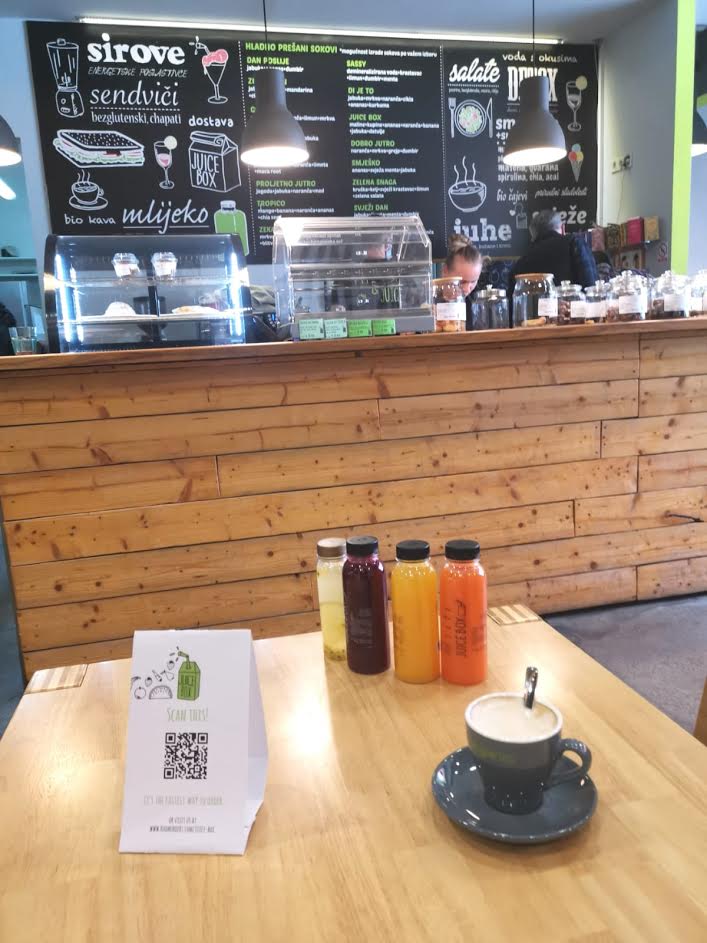
The virus has changed the way we operate and we need to communicate that we are changing to meet new behaviours and habits of our customers – whether it be out of fear or the dawn of digitalisation.”
One of Juicebox’s four restaurants in the business district of Radnicka typically makes 1,200 meals per day - just for lunch. RoomOrders has significantly streamlined processes, but perhaps its key importance in this crisis is its reduction of contact with everything from menus to payment methods.
“Instead of printing a new menu every day, we just update our daily menu as easily as our Facebook or Instagram posts and our guests now just scan a QR code sticker on our tables to make orders and payments,” said Natasa.
A Croatian company, RoomOrders has also introduced pick-up and delivery options.
“The delivery option is great because we have a fleet of electric cars, allowing us to promote our fresh, organic and healthy reputation,” Natasa said.
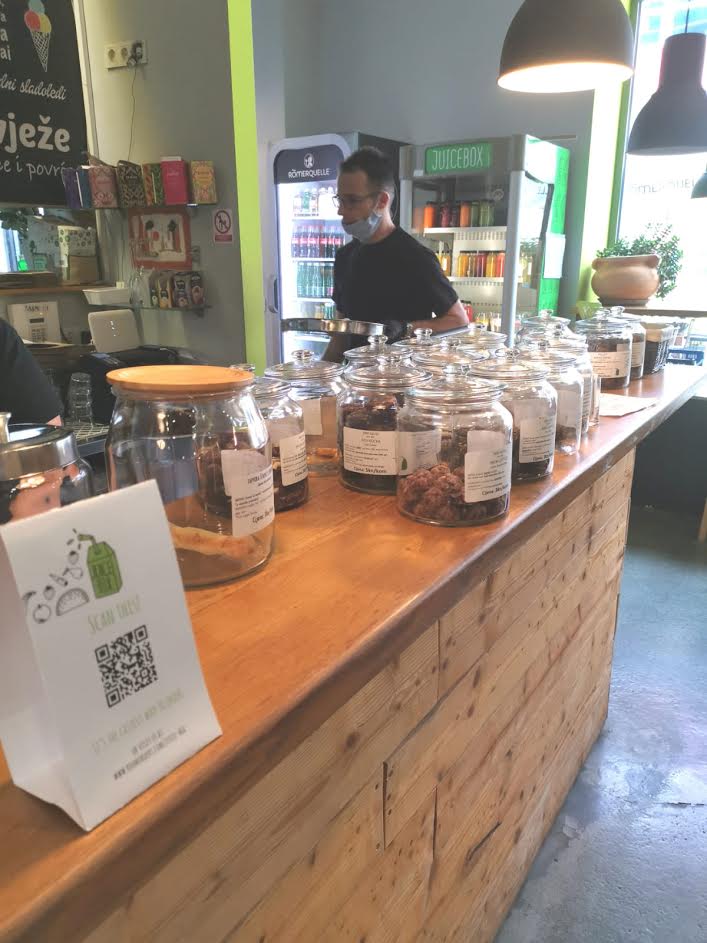
As well as a presence in leading hotels across Croatia, including Hilton, Sheraton and Westin, RoomOrders is breaking into leading HORECA outlets, including restaurant chain Batak and the café chain Leggiero.
Croatia is a tourism powerhouse and many hospitality providers are anxious about the drop in tourist receipts this season. Tourism accounts for some 20% of the national budget.
RoomOrders CEO Eugene Brcic Jones said that his company's pivot to the restaurant, cafe and bar sector was inspired by the desire to help the badly hit hospitality sector in Croatia.
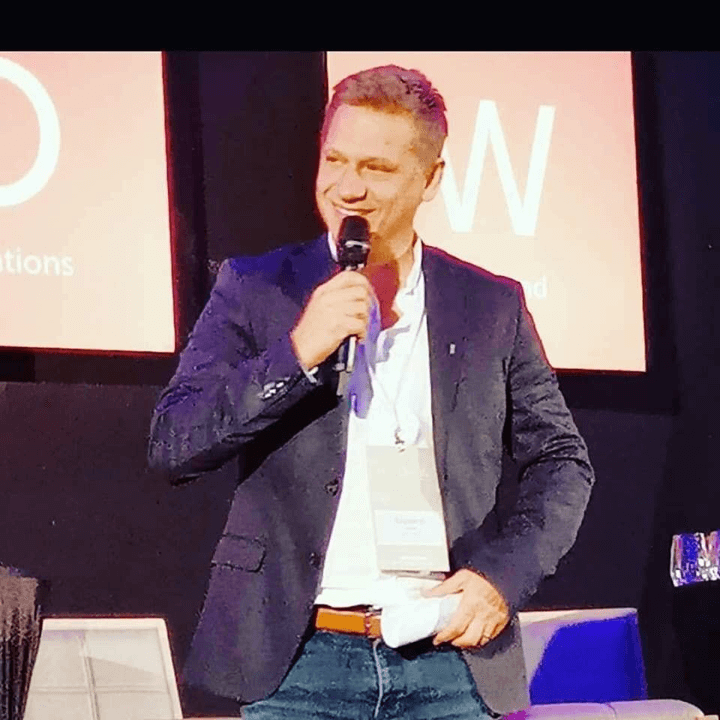
We primarily wanted to help food and beverage providers who are struggling to deal with the coronavirus, especially delivery, which is very expensive in an industry that only makes an average of 3-8% profit margin. Many restaurants are paying as high as 36% fees for popular delivery services.
"Our service is as low as 1% per transaction," said Brcic Jones. "It think it's more than generous, and will help many stay afloat."
Internationally awarded hostel Swanky Mint Hostel and Swanky Monkey Garden café bar are launching RoomOrders’ cloud-based ordering and payment next week.
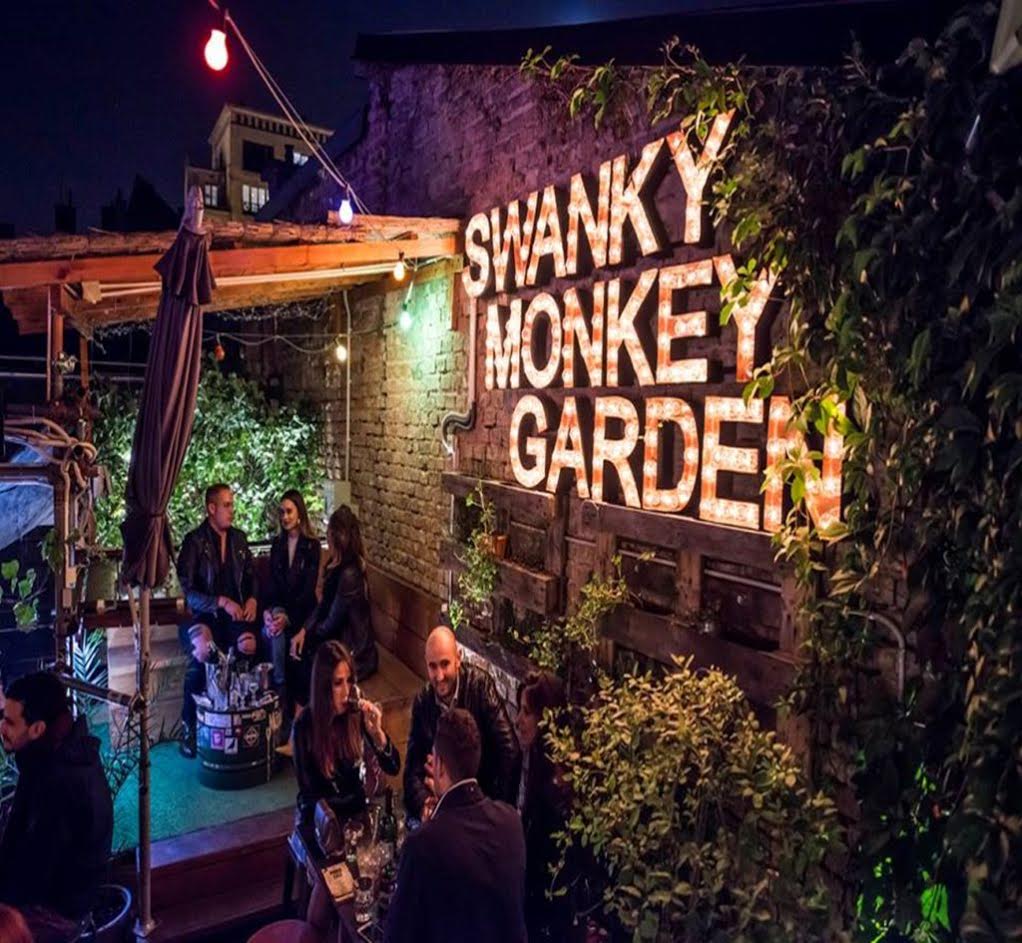
“We’re excited about how our guests will react,” said owner Andrija Pirnat. “There will be some education through our waiters and marketing to spread awareness, but they are mostly young early adopters, so we anticipate that pick-up of digital habits will be seamless.”
“We expect our hostel sector to have a shy start, so our early focus will be on our popular bar.”
Josip Maric, owner of Tagliata restaurants and a scattering of boutique hotels in the Adriatic seaside resort town of Trogir, said he wanted his patrons to feel that his businesses are looking after health and safety of customers.
“The sun is out and the air is warm, and it looks like it’s back to normal,” he said. “But people have been locked up for over two months, naturally they are afraid and it will take some time to get rid of their fears.”
Quarantine & Testing Rules for Your Country After a Croatian Holiday
Last updated on October 24, 2020 - What are the conditions for your return home after a holiday in Croatia? Do you need to quarantine? This article is regularly updated with the most recent information.
Getting the latest travel info is a challenge at the moment. The Total Croatia Travel INFO Viber community is putting together a resource to explain quarantine and testing requirements in your home country after a holiday in Croatia. Join us and contribute (you will need to download the Viber app).
A very useful resource to help us answer that question is Re-open Europe, so make sure you check that out first.
However, in addition to that, we decided to do some research of our own, as well as ask the VERY active new Viber community, Total Croatia Travel INFO for some help. We've managed to find the current travel information for most European countries, which you can find below. However, if your country is not covered, or if the rules have changed and we've missed that, please email us at This email address is being protected from spambots. You need JavaScript enabled to view it. Subject Quarantine, and we will add/edit (please include the official link).
All of the EU/EEA countries listed below (the EU, the UK, Switzerland, Norway, Lichtenstein, and Iceland) plus the US and Canada have the official decision linked under the country name:
Austria - as of August 17, Croatia has been placed on Austrian "high-risk list", meaning that all EU/EAA/Swiss citizens arriving from Croatia need to present a negative PCR test, not older than 72 hours, or self-quarantine until you get tested within 48 hours of entry into Austria.
Belgium has created three zones, Croatia has been placed on the Green list on July 28th, meaning that there are no limitations for passengers arriving from Croatia - NO QUARANTINE.
Bulgaria - There are currently no restrictions in place for Bulgarian citizens returning to Bulgaria from Croatia - NO QUARANTINE
Cyprus - Croatia is currently on the B list of countries, meaning greater epidemiological uncertainty. Travelers from the B-list countries need to show a negative test, taken 72 hours prior to entry. Citizens of Cyprus with permanent residence there are, however, exempt from that requirement.
Czechia - Croatia is on Czech list of countries with a low risk of COVID-19 - NO QUARANTINE
Denmark - Croatia added to Denmark's 'Orange list' as of August 28, which means that those returning to Denmark from Croatia are invited to get tested for COVID-19, or spend 14 days in quarantine
Estonia - citizens of Estonia and their family members are allowed to enter Estonia without any limitations. EU nationals are allowed to enter as long as they don't have any symptoms.
Finland - Travelers arriving in Finland from Croatia are allowed entry (with some restrictions) and are advised to self-quarantine upon entry. For further updates, please follow the official website, as the changes announced last week will not be applied.
France - NO QUARANTINE
Germany - Germany introduces new rules for those entering Germany from a high-risk area, saying they can get tested up to 72 hours after arriving in Germany, free of charge, and they don't need to self-quarantine for 14 days (click on this link for the list of the high-risk areas) - As of November 1, entire Croatia is on the German red-list on the German red-list.
Greece - no restrictions for entry into Greece for EU/EEA citizens
Hungary - national borders closed on September 1 for foreign nationals (except for the Czech, Polish, and Slovakian citizens with a negative COVID-19 test, as well as other exemptions), while Hungarian nationals returning to Hungary will have to either self-isolate for 14 days or have 2 negative PCR tests.
Iceland - everyone entering Iceland has to either get tested upon arrival or quarantine for 14 days. The citizens and residents of Iceland (update on July 30: and others entering Iceland) who choose to be tested upon arrival will have to take special precautions during the first five days after arrival in Iceland or until they can be tested for the second time.
Ireland - The Irish Authorities require anyone coming into Ireland, apart from Northern Ireland and a small group of "Green Countries" (Croatia not on that list), to self-isolate for 14 days.
Italy - On August 12, Italy introduced new rules for those entering their territory, if they've spent any time in the previous 14 days in Croatia, Greece, Spain, or Malta: they need to either present a negative test, not older than 72 hours, or get tested within 48 upon entry to Italy. No quarantine or self-isolation rules are mandated.
Latvia has a very complicated algorithm to determine who needs to self-isolate when arriving from which country, and currently, Croatia is on the list of countries where 14 days of self-isolation are mandatory upon return - both for Latvian and for Croatian citizens.
Lithuania - Lithuania has decided to remove Croatia from its list of epidemiologically safe countries. That means that the Croatian citizens are banned from entering Lithuania, while Lithuanian citizens entering their home country, after a stay in Croatia, will have to self-isolate for two weeks.
Liechtenstein follows the rules set by the Swiss government, so NO QUARANTINE.
Luxembourg - there are no limitations for EU citizens' entry into Luxembourg NO QUARANTINE.
Malta - Croatia is on the list of the safe 'corridor countries' created by the Malta government. Travel between Croatia and Malta is allowed if you've been in one of the 'safe countries' for 14 days before entering Malta (Serbia, Montenegro, Bosnia and Herzegovina not on that list) - NO QUARANTINE.
The Netherlands - as of July 21, Croatia is placed on the "Orange" list by the Dutch government, which means that both the Croatian nationals and the Dutch nationals returning to the Netherlands from Croatia are strongly advised to self-quarantine for 14 days (original decision, in Dutch)
Norway - Croatia is on the Norwegian "red list", meaning that anyone arriving in Norway from Croatia needs to quarantine for 10 days.
Poland - Persons crossing the borders of the Republic of Poland that are the internal EU borders do not have to undergo a mandatory 14-day quarantine - NO QUARANTINE for arrivals from Croatia.
Portugal - no restrictions for entry into mainland Portugal, some restrictions in place for Madeira and Azores NO QUARANTINE.
Romania - Croatia is on the Romanian "Green list" - no limitations on entry, NO QUARANTINE.
Slovakia - Croatia will be removed from the Slovakian List of “Safe countries” on September 1st - travelers who visited Croatia need to self-isolate in Slovakia until they receive the negative RT-PCR test result for COVID-19 done in the Slovak Republic)
Slovenia - Slovenia modified their green and red lists on September 28, and 8 Croatian counties are on the red list (Brod Posavina, Dubrovnik-Neretva, Lika-Senj, Požega-Slavonia, Šibenik-Knin, Split-Dalmatia, Virovitica-Podravina, and Zadar counties, while the rest of them (including all that are bordering with Slovenia) are on the yellow list.
Spain has opened its borders to Spanish and other EU citizens without limitations - NO QUARANTINE.
Sweden has no limitations for entry for its own or any other EU citizens - NO QUARANTINE.
Switzerland - As of September 7, travelers entering Switzerland from Croatia have to go into quarantine for ten days (no exemption for negative test-result holders)
The UK - On August 22nd, at 4am, Croatia to be removed from the UK travel corridor list, meaning that passengers arriving in the UK after that time will have to quarantine for 14 days.
USA - Croatia is not on the American list of countries that are under travel restrictions. All passengers arriving in the US from Croatia are, however, advised to self-isolate for 14 days.
Canada has a mandatory 14-day quarantine for anyone entering Canada, including Croatian citizens.
The information is out there, and we can find it as a community. If you would like to help grow this list further, join the Total Croatia Travel INFO Viber community and place the link.
For an overview of the most important recent TCN travel articles, follow this dedicated link.
Securol: From Innovative Food Production in Slavonia to Hand Sanitizer for Croatia
May 29, 2020 - One of Croatia's leading producers of healthy food is turning its attention to assisting with the COVID-19 crisis. Meet the Securol hand sanitizer which could soon be supplying the needs of Croatia at a fair price.
Call me crazy, but the longer this coronavirus crisis goes on, the more hopeful I am for a better Croatia in the post-corona era.
Yes, there will be severe economic hardship for more of us, and yes, life will not be the same. But this unique situation has also fostered an environment that can bring real change, an environment where the innovative little (or not so little) has a chance to make an impact much larger than one might expect.
A bit like Croatia itself on the world stage - this tiny country which dared to dream has overperformed on the world stage in some many fields. The World Cup obviously comes to mind, but look too at what Croats have contributed to technology, invention, innovation, health and IT.
Croatians are beginning to demand change, as the Glas Poduzetnika initiative gathers pace. Meanwhile, some of the finest Croatian minds are coming up with local solutions to tackle the unique set of challenges Croatia is currently experiencing.
Which brings us to a small village not far from the Slavonian town of Donji Miholjac, which is surrounded by fields and fields of prime arable land.
And much of that land has been put to very good use since 1981 by a local company called Protect Pharma. And with the current crisis, Protect Pharma is using its decades of expertise and resources to begin production of a very sought-after product both now and for the foreseeable future.
Hand santizer.
I absolutely love EVERYTHING about this project, but rather than me tell you about it, let's meet Protect Pharma CEO Mladen Falamic, who tells us not only about his incredible food business, but also about how his new Securol hand-sanitizer could soon be servicing Croatia's needs at a very affordable and fair price. Croatian tech, innovation and quality for Croatia, and beyond.
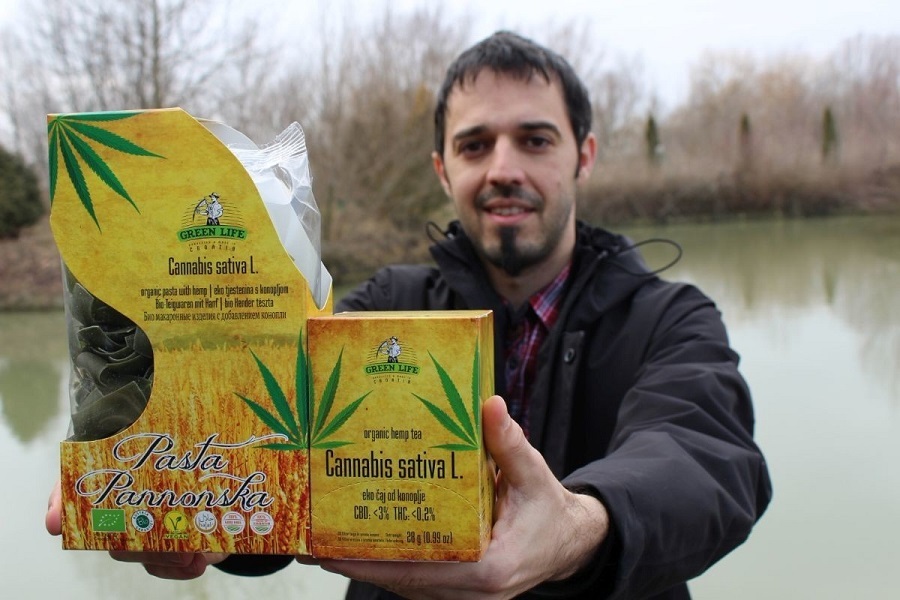
With the crisis in full swing and lots of appeals and solutions vying for attention, establishing trust in a venture is of paramount importance. So let's start by establishing some credentials. Tell us who you are and what Securol is.
Firstly, it is not easy to explain who we are quickly, so a longer introduction is necessary to give a better understanding.
Protect Pharma Ltd. from Rakitovica near Donji Miholjac is a family-owned company which has been and continues to be successful in both Croatian and foreign markets. Our agricultural activities date back to 1981, and the production and processing of products started in 1989 known with the Fami brand.
As we have been engaged in agriculture - both processing and production - for many years, our knowledge and experience complemented by modern technology make us one of the major food industries in Croatia. When we began our agricultural production, we recognized the potentials of cultures that were not common in our area such as: garlic, chamomile, beans, peanuts and we were also doing the purchase of mushrooms and snails (in the early 1980s).
We cherish a long tradition in production of water, fruit and natural juices, syrups, pasta, spices, sauces, food seasonings, bread and bakery products, cakes, biscuits, additives for confectioneries and bakery, spice mixes etc. But as we always search for more challenges and follow the market demands, we are developing, exploring, creating innovations and more.
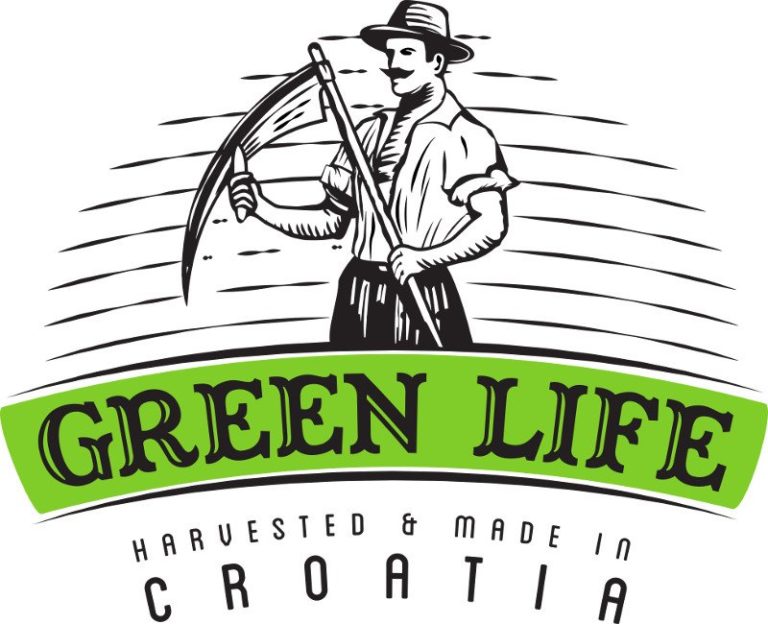
In an effort to transfer our unique achievements in healthy food and lifestyle to our customers, we developed a Green Life food, food supplements with health claims product line. Our long-standing tradition and experience in agriculture and food production have been transformed into the highest quality of Green Life product line. Green Life products are grown and produced in a completely natural way, which is affirmed by the certificates for these products (Croatian organic product HR-EKO-07, Austria Bio Garantie, Halal, Vegan, ISO 9001: 2015, HACCP, some are also Gluten-Free).
Our products are the result of many years of research, analysis, development and innovation, and as such, they follow the trends in the functional food industry, and with some products, we could say that we are setting trends. Green Life products are naturally grown and produced without flavour and color enhancers. Our new product line carries the role of functional food because besides having a high nutritional value, it has a beneficial effect on the general health of people.
As a business partner we guarantee the best, certified quality of raw materials and end products. Organically certified processing and drying of vegetables, fruits, oilseeds, cereals, spices and herbs, the development and production of products that have a positive impact on human health are just some of the activities our company performs. All our processing facilities, agricultural areas, as well as sales, accounting and administration are located in a small Slavonian village called Rakitovica. Rakitovica is located north side of the Karašica river, surrounded by vast fields and forests, and on the other, the north side, about 5 km away is the town of Donji Miholjac and the river Drava. The area of fertile Slavonia is ideal for organic agriculture and organic food production.
Our goal is to expand to new markets, and to become a market leader recognized in quality and authenticity.
Securol is one of the first sanitizing brands that emerged as a problem solution for the current situation. We usually produce other products and services, but Securol is a whole new area of our activities. We have all the basics needed to develop such a product in two weeks, and so we did. And we want it to last.
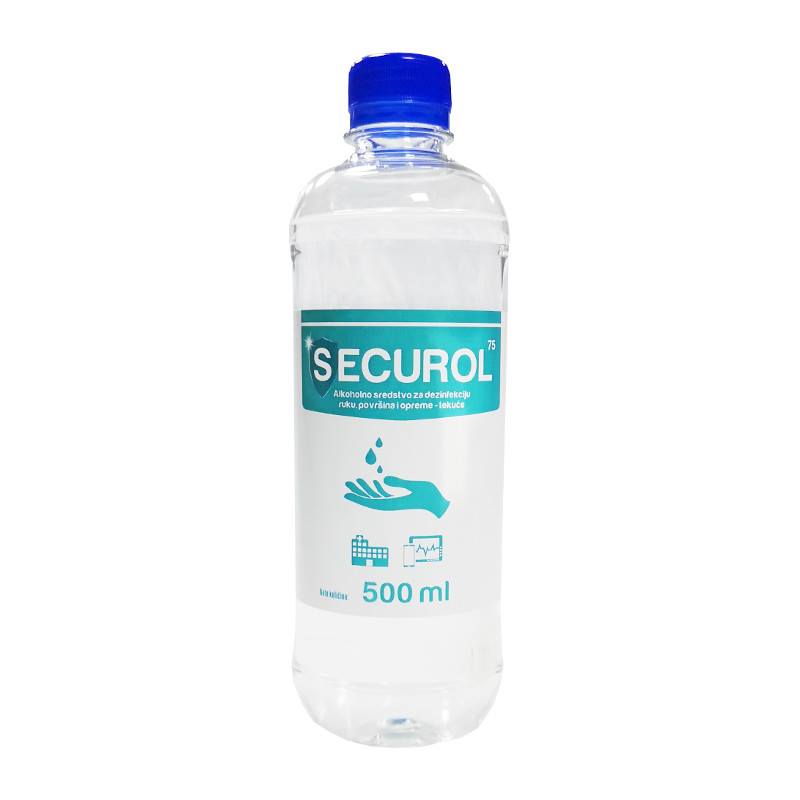
The corona crisis has caused lots of destruction but also brought some opportunity. How did you go from food products to sanitiser production?
To maintain clean and disinfected facilities, we have regular daily cleaning procedures, but when COVID-19 hit our area, at one point we could not buy sanitizers. There was a huge hole in market, but as we use alcohol for hemp extraction, we had a big quantity of alcohol in stock. So initially we developed and made sanitizer for our own purposes. Of course, people talked about it, and we got inquiries from pharmacies, the police, civil protection headquarters, and so on… So we did some more due diligence and in an extremely short period of time, we developed the brand Securol to be ready for the market and fully compliant with EU regulations.
At the moment you have 1600 bottles ready for sale and distribution, but you have the capacity to produce much more. Tell us about the capacity you have if you had all you needed. What are you missing and what do you need to get to optimal production levels?
The situation with our stock is changing from hour to hour, and at this particular moment, we have 1600 bottles of 50 and 100ml Securol 75, and a couple of thousand of 1000ml. As we usually produce and fill CBD oil in our lab, we use those machines so we can easily produce and fill, such as 10,000 small bottles per day. If we talk about 500ml and 1000ml, we can produce a “little bit” more, Something like 6.000 bottles of 1000ml per hour, and a third line is for bottles of 5 liters and then we can produce and fill like 15.000 liters per hour. In this very unique time in which we live there is a shortage of regular things, such as small bottles, or spray caps, some raw material, packaging material etc.
Can you give us some quality assurance that the sanitizer has been approved by the authorities?
Yes, the Safety Data Sheet has been approved by the Institute of Public Health in Croatia, a customs license to handle ethanol, an SGS certified production at the plant in Rakitovica.
We have a safety certificate verified by "Zavod za javno zdravstvo Andrija Štampar" and a permit from the Ministry Of Health for the product to be marketed.
Ok, now let's get practical. You have a great product needed by everyone in Croatia. How do you reach your market? What are the logistical challenges?
We want to be as close to people's hands and items as possible. That’s why we will sell Securol to our existing partners – retail chains, webshop platforms, possible direct delivery to customers at their homes or other places with our logistics partners. And we also want to use new innovative partners like Glovo or Bike Express as a bicycle delivery system, at least in Zagreb. In short, we will sell to our partners via webshops, physical stores and hopefully one nice distributor for the entire country. We also plan to sell to other markets in need, preferably through a distribution partner for an entire area or country. But first we plan to build the business only to work in Croatia and optimize our role in the crisis and maintain the opportunity to keep our plant open and working for the 30 workers there. We want to build this story to be a long-term brand and business, it is very important to us to keep control over our products and have them flexible for adoption if needed by specific partners needs, as in the market at home and the world.
What IS your market - retail, wholesale, institutions?
All of the above. First and foremost, we are a factory. But in times like these and also in general, we strive for the most optimal solutions with which we can have as many open doors as possible, but choose when to knock and get in.
Tell us a little about price and transparency.
This situation had created chaos, and prices have sky-rocketd. And as we are the creator of product – Securol, we are taking care to find the most reliable, higher-quality raw materials, the best packaging that is also fully possible to recycle packaging materials. But we also want to place a heavy emphasis on fair pricing. We have already made changes to our pricing when raw material price changes to lower, so we keep transparency based on raw material and packaging material market prices.
Certainty is one of the things most sought after in this increasingly uncertain world. How soon do you deliver?
Yes it is… and it is important to be calm and precise. We already started deliveries last week, and expanding our network of partners constantly.
How do people order, and how do they get involved if they want to support your bottles, either financially, or perhaps with supply of empty bottles, for example?
Easy. Orders are by email, partners, webshops, local stores, etc…
Yes, there is the option of involving our partners to provide us bottles they prefer to use, and it already works. We are also developing new brands for our partners abroad.
You can get it all in our webshop on our web page. Both end consumer and wholesale buyers can get it there. You can get it all in our webshop on our web page. Both end consumer and wholesale buyers can get it there.
Consumers can't pay for now with credit cards. But one can pay the postman on receipt or simply through an invoice.
Big buyers simply write an email to us with their company info and inquiry about the product and delivery.
This email address is being protected from spambots. You need JavaScript enabled to view it.
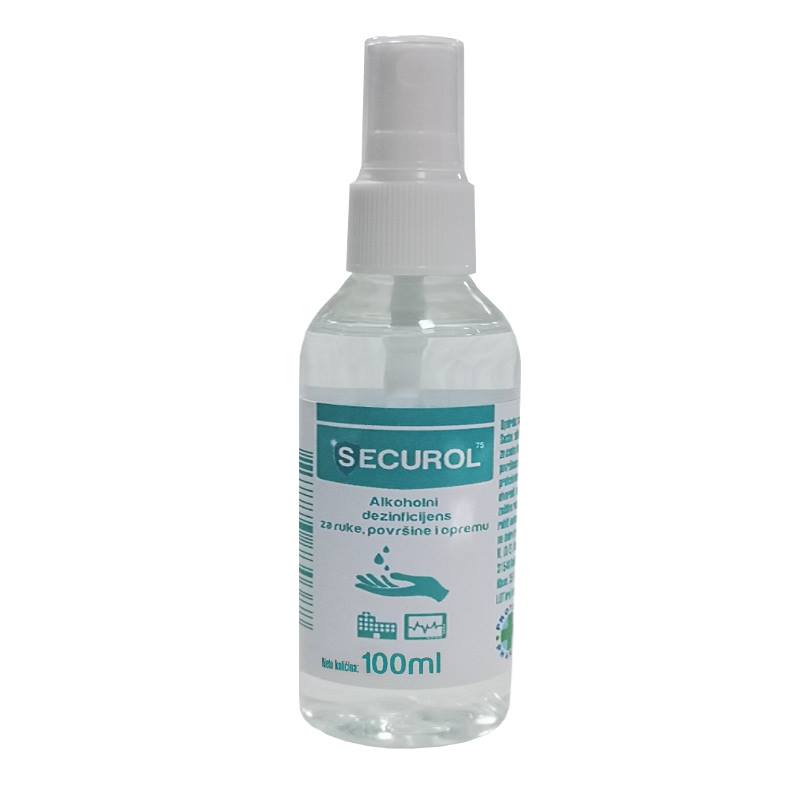
Visit the Securol Facebook page here.
Learn more about the Protect Pharma range of food products.
Now meet Mladen in a video interview organised, filmed and edited by Gustavo Vilera. Mladen is a really inspirational guy, and a symbol of the new Croatia 2.0.


